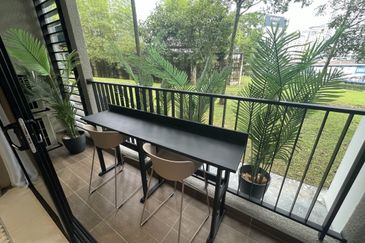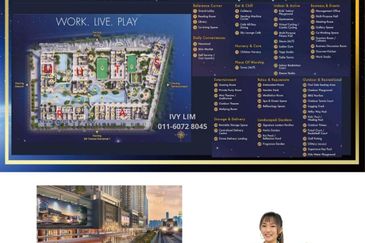
- "We were caught by surprise (with the mandatory EPF contribution). We were not ready for this. I was hoping for a little bit more time. If they told us it starts on Jan 1, 2026, then we [would] know what to do," said Glomac group managing director and chief executive officer Datuk Seri FD Iskandar Mohamed Mansor.
KUALA LUMPUR (Oct 23): Property developer Glomac Bhd (KL:GLOMAC) has urged the government to start the implementation of mandatory Employees Provident Fund (EPF) contribution by foreign workers, as announced in Budget 2025, later rather than sooner.
"We were caught by surprise (with the mandatory EPF contribution). We were not ready for this. I was hoping for a little bit more time. If they told us it starts on Jan 1, 2026, then we [would] know what to do," said Glomac group managing director and chief executive officer Datuk Seri FD Iskandar Mohamed Mansor. (pictured)
The mandatory EPF contribution will be implemented in phases, according to the Budget 2025 announcement last Friday, with the timeline of said implementation yet to be revealed.
While Iskandar acknowledged the rationale behind the new policy, he said employers would be negatively affected in the short term.
"Well, it will definitely affect our construction sites, because our construction sites have some foreign workers. In the long run, I know where the government is coming from. Other countries are already doing it. But in the short run, I think a lot of employers are going to face difficulties," he said
Iskandar echoed the sentiment of the Federation of Malaysian Manufacturers (FMM), which has since urged the government to delay implementation of the plan by two years to allow sufficient time for stakeholder consultation.
FMM president Tan Sri Soh Thian Lai in a statement on Monday said EPF should engage with stakeholders to clarify critical aspects such as coverage, contribution rates and phased timelines, allowing businesses ample time to plan and adapt.
The mandatory EPF contribution would put pressure on businesses, affecting their cash flow, operating costs and overall operations, Soh said.
Meanwhile, Iskandar called on the government to incentivise use of the Industrialised Building System (IBS) in the construction industry as a way to reduce dependence on foreign workers.
"By asking people to adopt IBS, I think incentives must be given. If not monetary incentives, maybe you can give certain things like higher plot ratio, faster approvals, things like that," he said.
Looking to buy a home? Sign up for EdgeProp START and get exclusive rewards and vouchers for ANY home purchase in Malaysia (primary or subsale)!
TOP PICKS BY EDGEPROP

LSH33 ( Laman Seri Harmoni )
Sentul, Kuala Lumpur

M Adora @ Wangsa Melawati
Wangsa Maju, Kuala Lumpur

M Adora @ Wangsa Melawati
Wangsa Maju, Kuala Lumpur

Sunway Rydgeway Puncak Melawati
Taman Melawati, Selangor

Kenwingston Platz Residence
Setapak, Kuala Lumpur

Henna Residence @ The Quartz
Wangsa Maju, Kuala Lumpur

M Adora @ Wangsa Melawati
Wangsa Maju, Kuala Lumpur

M Adora @ Wangsa Melawati
Wangsa Maju, Kuala Lumpur

The Ridge @ KL East (Residensi Rabung KL Timur)
Setapak, Kuala Lumpur

Sunway Avila Residences
Wangsa Maju, Kuala Lumpur















